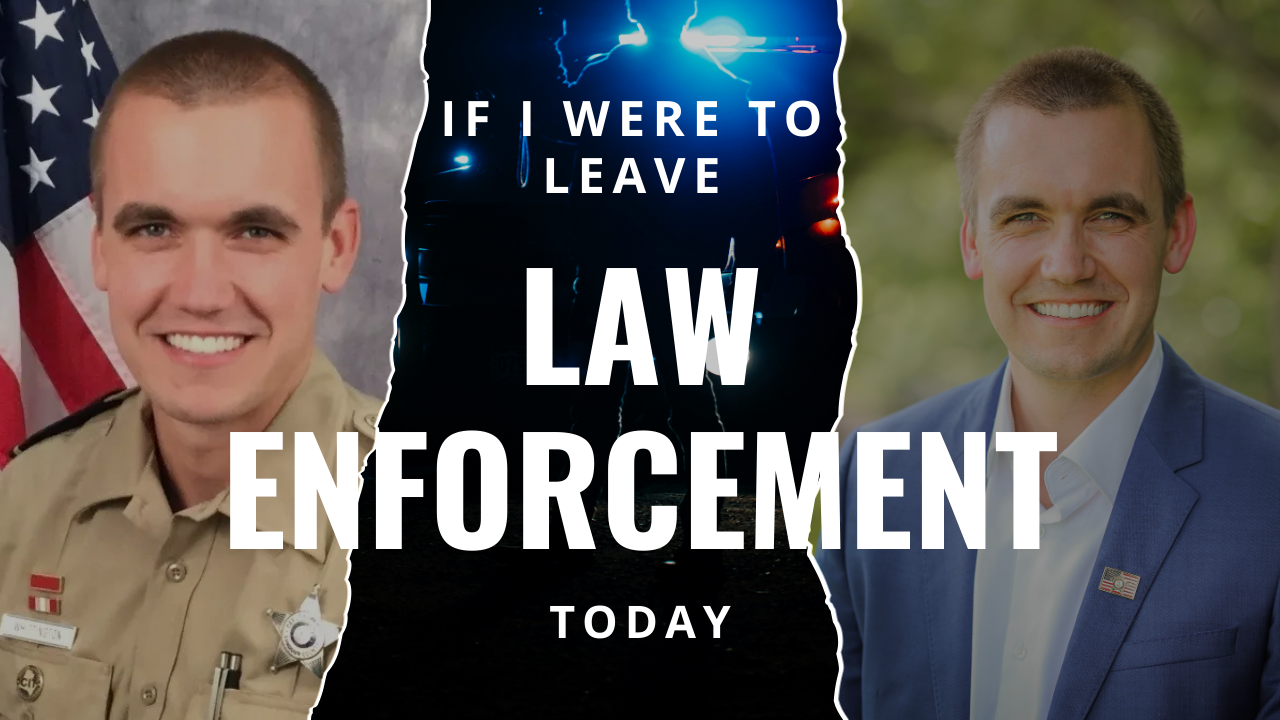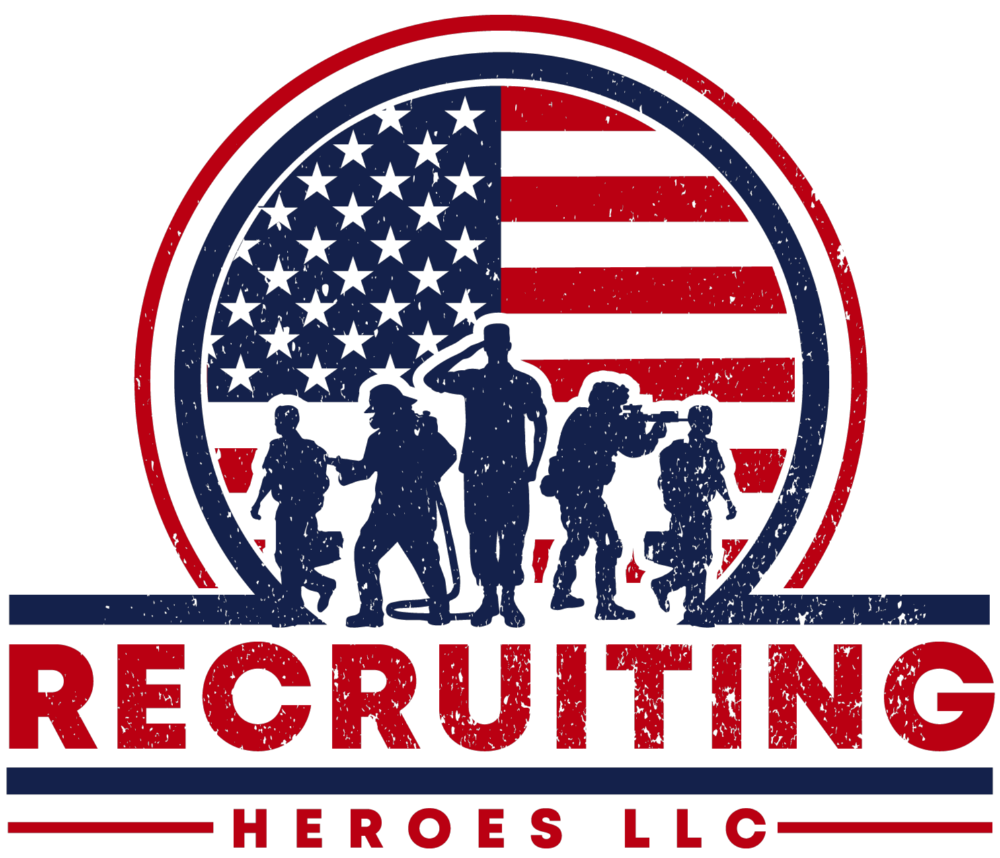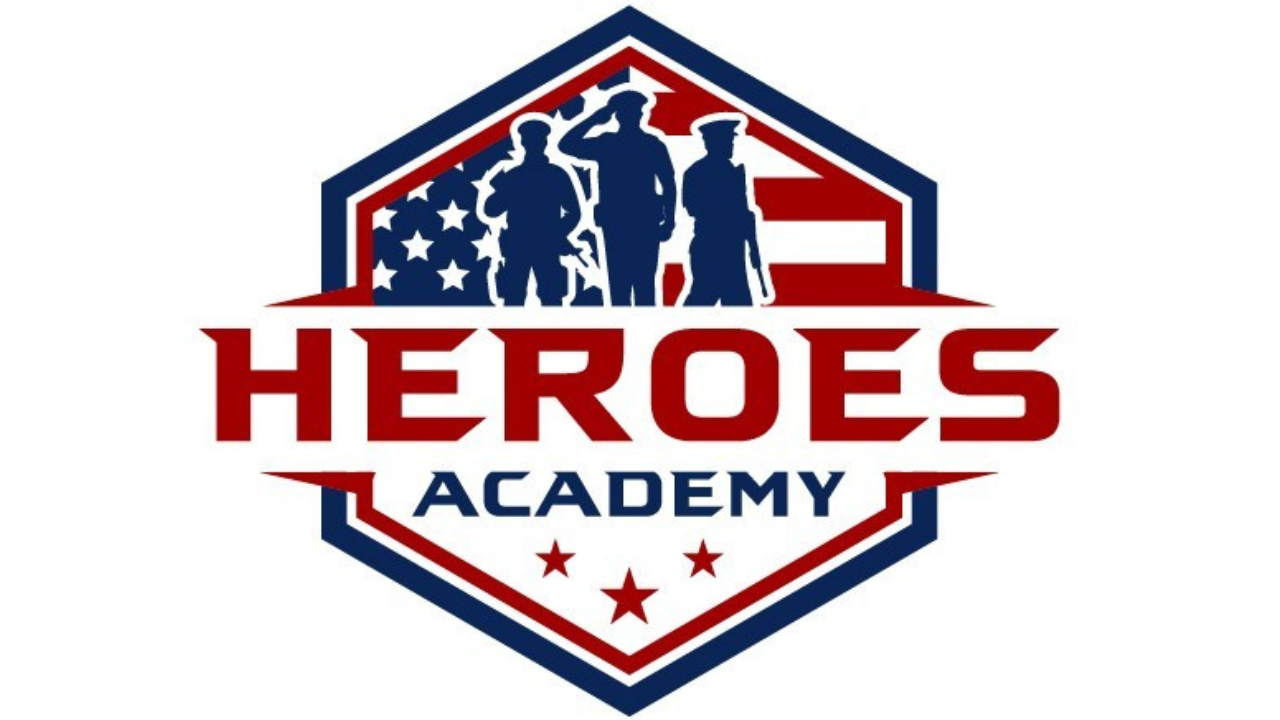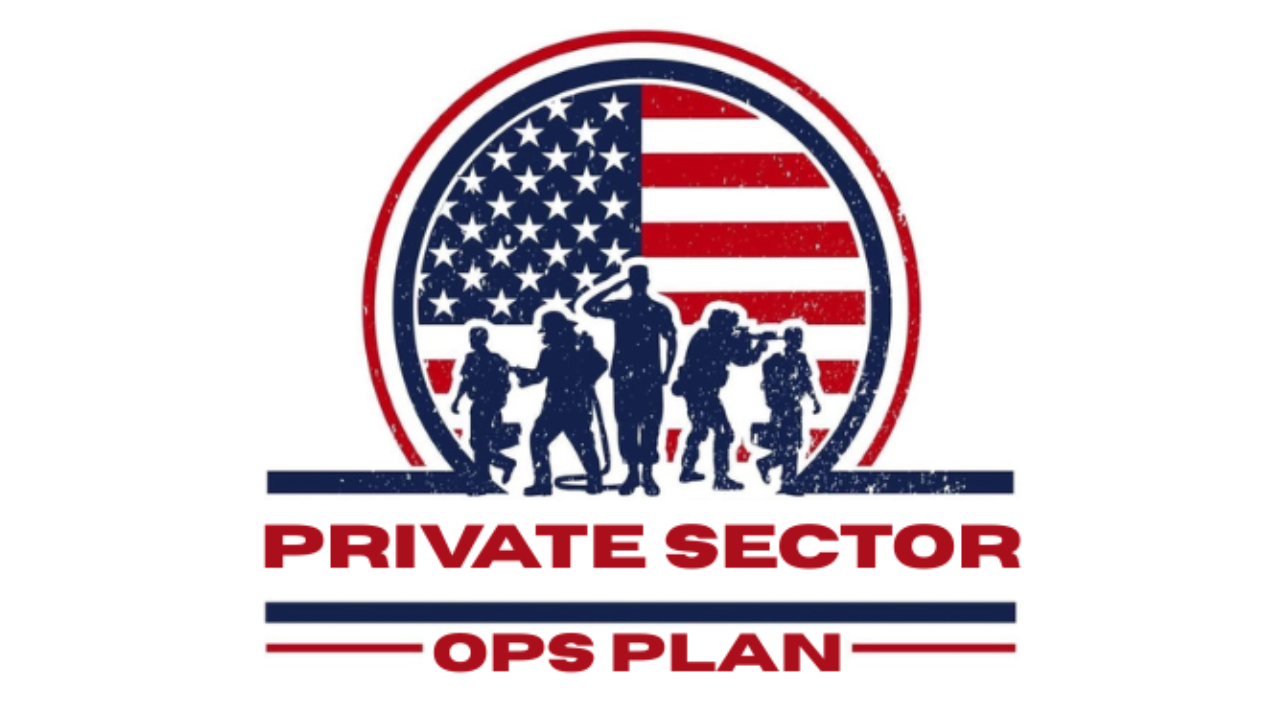If I Were Leaving Law Enforcement Today: Here's What I Would Do to Find a Civilian Job
Sep 30, 2025
For years, my identity was inseparable from my badge. Law enforcement wasn’t just my career, it was my purpose, my mission, and my community. When I first decided to leave the Thin Blue Line, I thought the transition would be straightforward. I had a strong work ethic, valuable experience, and a proven track record. What I quickly realized, however, was that stepping into the private sector is a completely different world...one that plays by its own rules.
If I were leaving law enforcement today, knowing everything I know now, I would do things very differently. Over the past few years, I’ve not only navigated this transition myself but also built Recruiting Heroes LLC, written Beyond the Thin Blue Line, and created the The Heroes Academy and Heroes Community to give officers the tools and guidance I wish I had.
This article is my roadmap, part reflection, part instruction manual. It’s what I’d do, step by step, if I had to start all over again.
Step 1: Get Clear on Your Why
Leaving law enforcement is not like leaving any other job. It’s not just walking away from a paycheck; it’s stepping out of an identity.
When I was wrestling with the decision, I spent months in denial. I didn’t want to admit that I was burned out, that I was missing too much family time, and that the career I thought I’d have for life no longer fit who I was becoming.
If I could go back, I’d force myself to ask tough questions earlier:
- Am I leaving because I’m running from something or running toward something?
- Do I want less stress, more pay, or simply a new challenge?
- What parts of this career do I want to keep in my next chapter, leadership, investigations, community engagement, and which do I want to leave behind?
Your “why” becomes your compass. Without it, you’ll drift.
This is also where community matters. In the Heroes Community, I’ve seen countless officers wrestle with this very step. Having a place to talk it through with others who understand the unique pull of the badge, and the equally strong pull to move on, can make all the difference. Sometimes, you don’t even realize your “why” until you say it out loud to people who’ve been there.
Step 2: Take Inventory of Transferable Skills
Here’s the truth most officers don’t realize: you already have the skills that civilian employers are desperate for. The challenge isn’t whether you have the skills, it’s whether you can translate them.
When I first tried to write down what I had done in law enforcement, it looked like a jumble of police jargon:
- Conducted traffic stops
- Wrote search warrants
- Testified in court
None of that makes sense to a recruiter.
If I were doing it again today, I’d sit down with a blank sheet of paper and list out not just the tasks I did, but the skills behind them. For example:
- Communication & Crisis Management: Talking down someone in a mental health crisis. That’s conflict resolution, empathy, and customer relations rolled into one.
- Leadership: As a Sergeant, I didn’t just supervise officers, I managed performance, delegated tasks, mentored new hires, and kept morale high. That’s operations management.
- Investigations: Whether it was fraud, theft, or assault, I gathered evidence, interviewed stakeholders, analyzed data, and built a case. That’s risk management and compliance in corporate language.
This skill translation is so important that we built entire modules around it in the Heroes Academy. We walk officers through how to reframe their experience in terms that recruiters actually understand and then practice telling those stories in interviews.
Step 3: Build a Civilian-Friendly Resume
When I left, my resume was a disaster. It read like a case report, and it was filled with acronyms and terminology that meant nothing outside of a squad room.
If I had to start again today, here’s exactly how I’d build it:
- Use a simple, ATS-friendly format. Applicant Tracking Systems (ATS) are the software gatekeepers that scan resumes for keywords. Fancy designs confuse them. Stick with a clean Word document in Calibri or Arial.
- Open with a strong executive summary. Not “Objective: To find a challenging career.” Instead: “Former Sergeant with 12 years of leadership, investigations, and risk management experience. Proven record of leading teams, reducing liability, and delivering results in high-pressure environments.”
- Quantify accomplishments. Instead of “supervised officers,” say “Supervised and developed a team of 8 officers, reducing case backlog by 25% through process improvements.” Numbers make your impact real.
- Tailor for each job. One generic resume won’t cut it. Read each job posting, highlight their keywords, and mirror them in your bullet points.
Inside the Heroes Academy, I provide my exact resume template, the same one I use for clients at Recruiting Heroes. We’ve tested it with thousands of applications, and it consistently gets through ATS filters.
To thank you for reading this article, I'd be honored to give you that template and instructions on writing a fantastic resume right here for free: https://www.recruitingheroesllc.com/heroes-job-search-guide
Your resume isn’t just a document. It’s your marketing brochure. And right now, it may be the only thing standing between you and an interview.
Step 4: Optimize LinkedIn Like It’s Your Digital Badge
If I were leaving today, I’d make LinkedIn my top priority, because it’s not just a profile, it’s your digital reputation. Recruiters use LinkedIn as their number one search tool and spend more time reviewing candidates' profiles than their resumes. If you’re not there, you’re invisible.
What I’d do:
- Professional headshot. Not in uniform, this isn’t about the past, it’s about the next chapter. Wear what you’d wear to a corporate interview.
- Headline that markets you. Instead of “Police Sergeant,” use: “Operations Leader | Risk Management | Investigations | Crisis Response.”
- About section as your story. This is where you connect the dots: “After more than a decade in law enforcement, I’ve developed expertise in investigations, leadership, and crisis management. Now I’m bringing that skillset to help private-sector organizations manage risk and build stronger teams.”
- Skills & endorsements. Add the ones that align with your target industry (e.g., cybersecurity, compliance, project management).
- Engage weekly. Post reflections, comment on industry articles, and share your perspective. That’s how you get noticed.
In the Heroes Community, we run live workshops where we literally screen-share LinkedIn profiles and optimize them together. Time and again, I’ve seen officers land recruiter outreach within weeks of optimizing their profile.
Step 5: Network Like Your Career Depends on It (Because It Does)
Here’s the cold truth: applying online rarely works. Research shows that 70–80% of jobs are landed through networking, not applications.
When I left law enforcement, I thought applying online was enough. It wasn’t. The job I ultimately landed came through a connection I’d made months earlier on LinkedIn.
If I were doing it again today, I’d:
- Start with my existing network. Reach out to retired colleagues, academy classmates, and friends already in the private sector. Ask how they made their transition.
- Expand intentionally. Join professional associations... ASIS for security, ACFE for fraud examiners, ISSA for cybersecurity. Attend conferences. Even virtual ones count.
- Do informational interviews. These are gold. Reach out to someone in a role you admire and ask for 20 minutes to learn about their career path. You’re not asking for a job—you’re building a relationship.
- Give value before you ask. Share useful articles, congratulate people on promotions, and comment thoughtfully on posts. Networking is a two-way street.
This is one of the biggest reasons we built the Heroes Community. It’s a ready-made network of officers, veterans, and first responders all navigating similar transitions. Instead of trying to build connections from scratch, you step into a group that already understands you, and often has opportunities to share.
Step 6: Research Industries That Value Law Enforcement Skills
One mistake I see all the time is officers only applying to “security guard” jobs. There’s nothing wrong with those roles, but they barely scratch the surface of what’s possible.
If I were leaving today, I’d target industries that already value the skills we bring:
- Corporate Security & Risk Management → protecting assets, compliance, executive protection
- Cybersecurity & IT → SOC analyst, threat intelligence, forensics
- Fraud & Compliance → insurance investigations, bank compliance, corporate audits
- Emergency Management & Business Continuity → healthcare systems, universities, government contractors
- Training & Development → corporate training, leadership programs
- Human Resources → employee relations, recruiting
- Sales & Business Development → especially companies that sell to government or law enforcement
The key is to think in terms of skills, not job titles. On LinkedIn, instead of searching “police officer jobs,” search skills like “investigations,” “risk analysis,” or “project management.” You’ll uncover roles you never knew existed.
In the Heroes Academy, we dedicate an entire section to helping officers map their skills to industries. We even provide lists of job boards tailored to each career path, from cybersecurity to compliance.
Step 7: Get Certified and Stay Competitive
If there’s one thing that levels the playing field, it’s certifications. Degrees are helpful, but certifications often carry more immediate weight with recruiters.
If I had to start again, I’d pick a target industry, research job opportunities, and pursue at least one credential before I left based on the certifications I saw pop up time and time again. Here are some top ones:
- Cybersecurity: CompTIA Security+, Certified Ethical Hacker (CEH), CISSP
- Project Management: PMP, CAPM
- Security & Risk: CPP (ASIS), CFE (Certified Fraud Examiner)
- Emergency Management: CEM, CBCP
- HR: SHRM-CP, PHR
Not only do certifications boost your resume, they also give you confidence in interviews. You can walk in knowing you’ve already met industry standards.
The Heroes Academy includes guidance on which certifications are most worth the time and money.
Step 8: Prepare for Civilian Interviews
If I had to pick the biggest shock of my transition, it wasn’t the loss of the badge, it was my first civilian interview.
I walked in ready to recite laws and talk about cases. They wanted me to tell stories about teamwork, leadership, and problem-solving. I stumbled hard.
If I could go back, I’d prepare like this:
- Learn the STAR method. Every behavioral question can be answered with Situation, Task, Action, Result. It keeps you structured.
- Translate to civilian terms. Instead of “I cleared a building during an armed burglary,” I’d say: “I led a high-pressure team response where quick decision-making and coordination ensured a safe outcome.”
- Practice out loud. Don’t just rehearse in your head. Say it until it feels natural.
- Ask smart questions. Show you care about the role: “What does success look like in this position after six months?” or “What are the biggest challenges your team is facing right now?”
Inside the Heroes Community, we run live mock interview sessions. Members get to practice with peers who understand the law enforcement background and then refine answers for a corporate audience.
Step 9: Manage the Financial Transition
This is the area that blindsides most officers. It did me.
When I left, I underestimated the financial changes: losing my pension vesting, higher healthcare costs, and even little things like suddenly needing a second car because I no longer had a take-home cruiser.
If I were leaving today, I’d:
- Review my pension vesting schedule and retirement accounts in detail.
- Talk to HR about what benefits I’d lose and what payouts I’d keep.
- Research healthcare options in the private sector (often 3–4x more expensive).
- Build a 6–12 month emergency fund before making the leap.
The financial side isn’t glamorous, but it’s critical. I’ve watched too many officers jump ship only to panic when the numbers don’t work out.
That’s one of the reasons we added financial planning sessions inside the Heroes Academy. We bring in experts who help officers map out pensions, 401(k)s, and healthcare costs before making the jump.
Step 10: Leave Professionally and Stay Connected
Finally, I’d make sure my last days in uniform honored the years I put into the profession.
When I left, I rushed out the door. I started a new job the Monday after my last Friday shift. I didn’t give myself time to breathe, reflect, or say proper goodbyes. That was a mistake.
If I could redo it:
- I’d thank my supervisors, mentors, and peers.
- I’d participate in an exit interview, not skip it.
- I’d donate unused sick leave to a colleague in need.
- I’d take at least a week off before starting my new role—to decompress and reset.
Remember: your reputation will follow you. Leave on good terms, and those relationships can continue to open doors for you in the private sector.
Final Thoughts: From Service to Success
If I were leaving law enforcement today, I wouldn’t try to do it alone. I’d lean on mentors, structured resources, and communities designed for this very transition.
That’s why I built the Heroes Academy and Heroes Community, to give officers what I didn’t have when I left: a playbook, a support network, and a place to ask questions without judgment.
The truth is, you already have what it takes to succeed in the private sector. You’ve led teams under pressure. You’ve made life-or-death decisions. You’ve built resilience, adaptability, and grit. Now it’s about telling that story in a way the civilian world understands.
Here’s the roadmap, one more time:
- Clarify your why.
- Translate your skills.
- Build a civilian-friendly resume.
- Optimize LinkedIn.
- Network relentlessly.
- Research industries that value your skills.
- Get certified.
- Prepare for interviews.
- Plan financially.
- Leave on good terms.
The badge may no longer define you, but it has prepared you. Your next career isn’t about starting over, it’s about carrying your service forward in a new way.
And you don’t have to do it alone. The path is already there. The question is.... are you ready to take the first step?
Stay safe, Heroes!
Colin
Looking for your next career? Learn how the Heroes Academy is the only transformational program designed specifically for law enforcement officers!
Have a Question For Us?
We'd Love to Hear From You!
We hate SPAM. We will never sell your information, for any reason.





